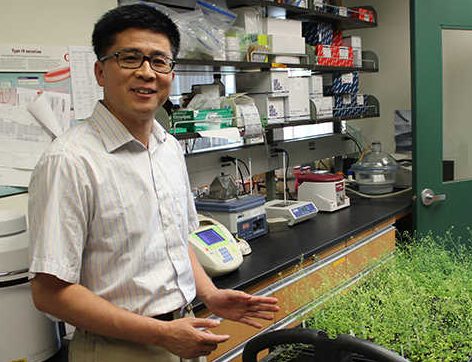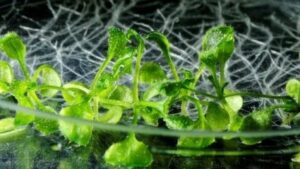A University of Connecticut researcher identifies a mutant plant that offers insight into how plants produce cell walls, which may ultimately reap applications for agricultural productivity and biofuel production.
Huanzhong Wang, assistant professor in the Department of Plant Science and Landscape Architecture, was recently awarded an NSF CAREER award, a grant that provides major support to promising young faculty in the sciences, to pursue his research on a newly identified protein in plants that plays a crucial role in stem cell proliferation and biomass accumulation.
Wang’s research speaks to the fundamental biological functions of plants. Around 450 million years ago when plants first started to move out of the ocean onto land, they had to find a way to retain water, to reach light from above, to transfer mineral nutrients upwards against gravity and, for fear of falling over, to retain structural integrity in their cell wall.
By manipulating these functions, Wang hopes to learn more about growing bigger, stronger crops. And that information is critical to facilitating the production of more biomass, which, when converted into biofuel, is an important product for the renewable energy sector.
More information is available here: http://today.uconn.edu/2015/09/plant-stem-cell-research-may-yield-bigger-stronger-crops/














